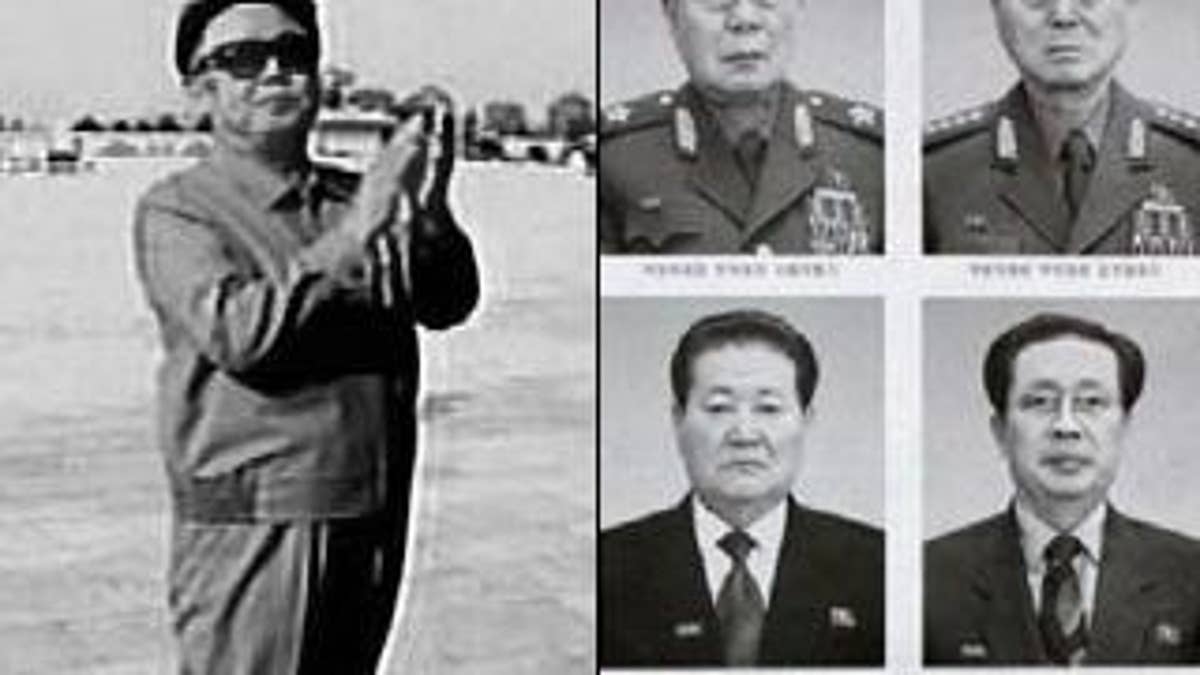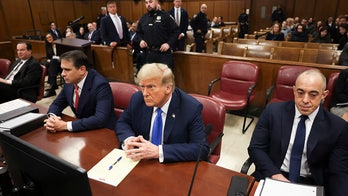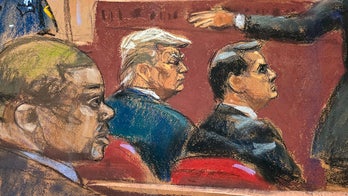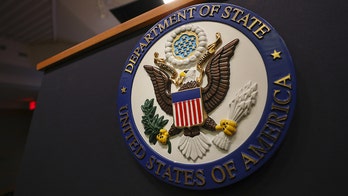
North Korean dictator Kim Jong Il has begun shifting power away from the communist party apparatus and strengthened the authority of his country's military, veteran watchers of the Stalinist regime have told FOX News.
The 67-year-old Kim, who appeared frail but engaged at a gathering of the Supreme People's Assembly in Pyongyang on April 9, has wielded ultimate power in his country since 1994, but is now said to be making his first serious moves to establish a clear line of succession. The April gathering was his first public appearance before a large audience since the stroke he is believed to have suffered last August.
Kim's newfound emphasis on the military emerged in a series of recent personnel and organizational shuffles that give rare insight into his thinking about the people and institutions surrounding him, and into his possible plans for succession.
The shifts likely explain the exceptionally bellicose nature -- even by North Korean standards -- of the regime's behavior in the period since last August: the suspension last fall of all accords with South Korea; the April 5 rocket launch that prompted a rebuke by the U.N. Security Council; the subsequent expulsion of International Atomic Energy Agency inspectors; the almost total abandonment of the Six-Party Talks; and, most recently, the declared resumption of the reprocessing of spent fuel rods at Yongbyon.
Among the most significant of the recent changes is an increase in power and numbers of personnel in the National Defense Commission (NDC), the nation's top military organ.
For example, oversight of the Operations Department, which employs an estimated 2,000 espionage agents, has been transferred from the Workers Party to the NDC. This move was made in tandem with Kim's elevation of General O Kuk Ryol, the director of the Operations Department and a longtime intimate of Kim's, to vice chairman of the NDC. As well, the NDC has taken over the Pyongyang No. 3 building, the headquarters of the party's research and external liaison departments. The research department collects intelligence on South Korea and other nations, while the external liaison department is responsible for training and dispatching agents.
What do these changes mean? As the Korean newspaper Chosun Ilbo put it, General O "has in effect emerged as the No. 2 man in charge of North Korea's supreme power next to Kim Jong Il."
The assessment of Korea's Joongang Ilbo daily is that NDC's "power has been expanded to become the de facto general administration."
Bruce Bechtol, a professor at the U.S. Marine Corps Command and Staff College at Quantico, told FOX News the changes signal whom Kim trusts, with a regime change on the horizon.
"This may mean that Kim Jong Il trusts the military more, or perhaps he trusts his longtime friend O Kuk Ryol more with clandestine activities than anyone in the party," he said.
At a minimum, the changes do not bode well for South Korea, led by conservative Lee Myung-bak. Kim's actions suggest his policies toward the South, which cut off aid to the North after Lee took power in Seoul in February 2008, will now be crafted by hard-line military officials instead of more pliable party leaders.
Yet analysts caution it would be a mistake to infer from these developments that Kim is grooming O as his successor. For one thing, there is the continued presence of Chang Sung-Taek, Kim's brother-in-law, in high positions in both the party and the military organizations -- the same binary path to supreme power that Kim himself took.
However, Chang is only four years younger than Kim and thus an unlikely candidate for his successor. A final potentially important development is the appointment just last week of Kim's third and youngest son, Kim Jong Un, a diabetic, to a mid-level position in the NDC. Bechtol suggested Kim is placing great authority in O and Chang to serve as a mentors for Kim Jong Un, or one of the other sons, who may emerge as Kim Jong Il's ultimate successor.
Rodger Baker of Stratfor Global Intelligence, an Austin-based think tank and consulting firm, sees the changes as a reaction by Kim to his own illness.
"Certainly the NDC has really solidified as the central leadership body of North Korea, so it sits over top of the Workers Party, over top of the military, over top of the parliament, in general in terms of power," Baker told FOX News. "It becomes the place where Kim Jong Il is able to shape his policies, where he's able to make sure that he has all the strongmen of North Korea in one location."
Baker also believes Kim's concerns over succession factor into the recent shifts. "He has a very strong fear that after he dies, if the country changes direction, that his family may be on the receiving end of vigilantism or punished or killed. So he's trying to create this structure that can have a sense of group leadership that maybe can be able to carry through whatever changes are going to take place, and not have it fall on his children," he said.
Also of note was the regime's decision, after the Supreme People's Assembly, to release a poster of "head shots" of each of the 12 top officials of the NDC. From a strictly visual standpoint, the poster showed North Korea still has much to learn about Western-style public relations tactics -- to Americans, the look is similar to that of the FBI's "ten most wanted" poster.
But the details are intriguing. The head shots all show the same pose and background. This makes it likely the images were not culled from existing archives but were rather taken recently and specifically for the purpose of public dissemination following the close of the Assembly.
General O can be seen, and so, too, can Chu Kyu Chang, in business suit and tie -- he is considered the father of the country's Taepodong missile program. The rocket launch on April 5 that provoked international condemnation of North Korea was widely believed to be a test of a Taepodong-2, a long-range ballistic missile suitable for use in the delivery of a nuclear warhead.
That these photographs of NDC leaders -- aged and unsmiling men, many of them longtime power brokers never before glimpsed by outsiders -- were made public at all offers a remarkable demonstration of the new primacy of the military establishment over the communist party in Kim's North Korea.
"The fact that the poster was published," said Bechtol, author of Red Rogue: The Persistent Challenge of North Korea, "means that the North Koreans want to put emphasis on the NDC."
James Rosen is the State Department correspondent for FOX News.




